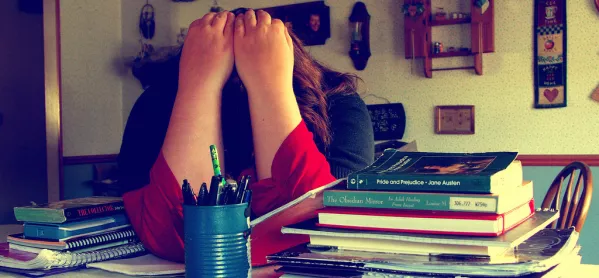Recent reports indicating that secondary school students have not been prepared sufficiently to make the transition to higher education confirm the experience of most academics who I talk to these days. According to a survey launched at a conference of HE advisors, much more needs to be done to ensure that students are ready to think and learn independently by the time they arrive at university.
The capacity for independent study and self-directed work is the most important mark of distinction between a university student and a school pupil. If young people are indeed having difficulty in making the transition from school to university, it is important to identify the causes of this problem.
So where does the problem lie? According to one view, the fault lies with the current system of exams, for not preparing students to face the challenge of university learning. “Our study shows, quite clearly, many of our exam systems are just not preparing students to make that leap from secondary to HE,” claims Jeremy Lewis, head of ACS Egham school.
Cultivating intellectual independence
However, preparing adolescents to become the kind of independent learners who can flourish in higher education cannot be simply the responsibility of an exam system. It requires a curriculum that provides a sound foundation in disciplinary knowledge alongside a pedagogy that is devoted to cultivating the intellectual independence of students. Experience indicates that much more could be done to assist students to gain the requisite disciplinary knowledge, as well as the habit of independent thinking and learning.
Comparisons between different generations of students are always risky. There is always the temptation to forget the problems young people faced making the transition to university in the past. Yet this is not the first time that students have found it difficult to make that all-important leap from secondary to higher education. The truth is that students are rarely ready to make the leap - if they were, they would already be on the other side. It is in the course of making that transition that students acquire the experience and the understanding of what is required from them in academic life. To make this happen, students need to be open to new challenges, to be prepared to exercise a degree of independent initiative and, above all, to show a willingness to move out of the comfort zone that they inhabited while at school.
One way of preparing school students to make the transition to higher education is by providing them with the intellectual foundation for independent learning. Regrettably, in recent years it has become evident that a growing number of young people entering higher education lack elementary numerical and literary skills - which force many universities to put on special introductory courses.
Gaps in knowledge
Some of them also lack the knowledge base that they need to engage with first-year undergraduate courses. In my own discipline - sociology - I can no longer take for granted that my first-year undergraduates will know the meaning of a modern society. There was a time not so long ago when newly arrived students would know a bit about the meaning of the industrial revolution and could therefore quickly come to appreciate the nature of social change. Some of them still do, but not a few require introduction to related issues that they would have encountered in school.
But dealing with gaps is knowledge is relatively easy in comparison with a much more troubling problem. Cultural influences - in and out of school - tend to avoid the task of encouraging students to move out of their comfort zone. Instead of normalising the experience of transition - first from primary to secondary and then to higher education - educators and parents unwittingly highlight the difficulties and upheavals associated it with. Often, the process of transition is understood and explained through the language of psychological upheavals, instead of in terms of the new intellectual challenges that school students will face. Consequently, when first-year undergraduates arrive on campus, many of them assume that the university is merely a more advanced version of secondary school.
Limiting opportunities
Students who regard higher education as a more sophisticated variant of school have not been prepared for the life of independent learning. This lack of preparation has little to do with a specific system of examination. It is the outcome of an over-interventionist culture that tends to limit young people’s opportunities to gain the habit of independence and take risks.
Schools need to start encouraging their students to move out of their comfort zones a long time before they do their A levels. They need to foster a climate where risk-taking is regarded as an opportunity rather than a source of threat. Above all, they need to educate young people to regard transitions as the exciting challenges that they really are.
Frank Furedi is emeritus professor of sociology at the University of Kent
Want to keep up with the latest education news and opinion? Follow TES on Twitter and like TES on Facebook




